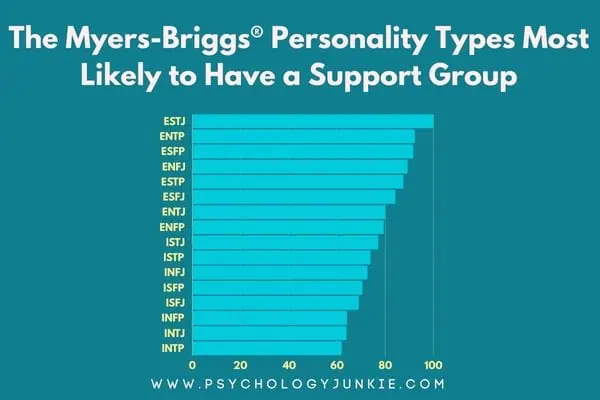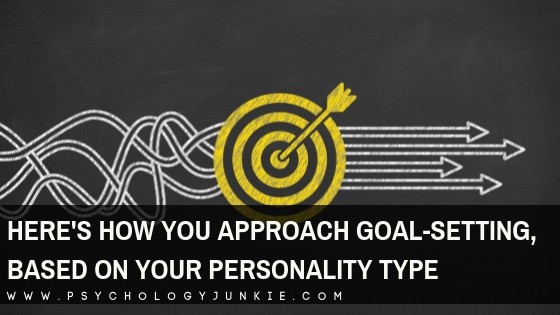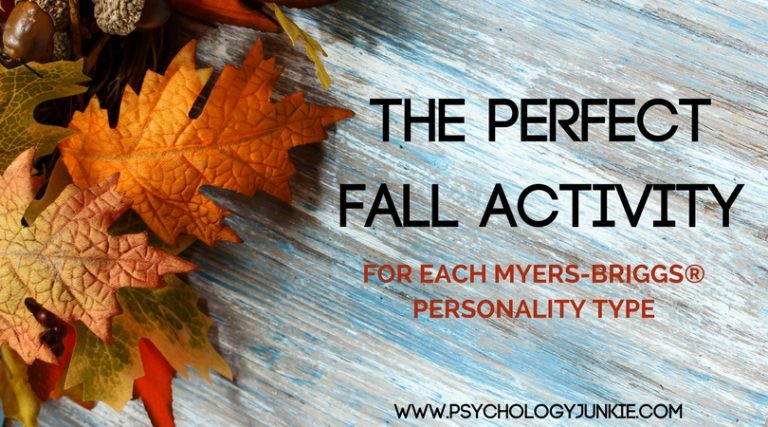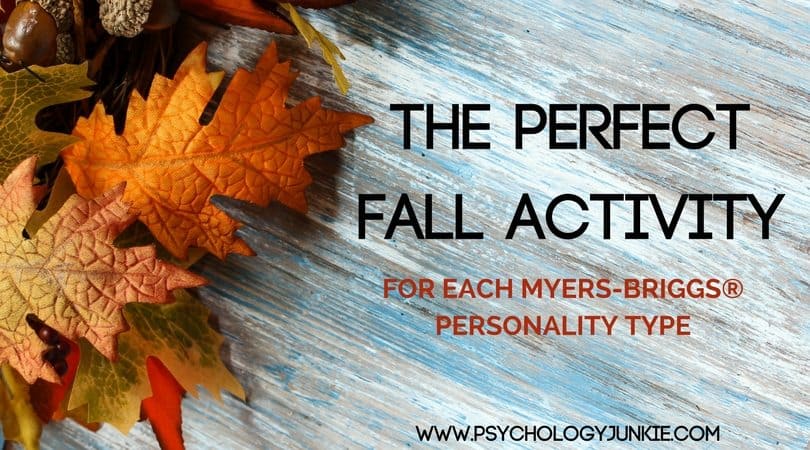These are the Myers-Briggs® Personality Types Most and Least Likely to Have Supportive Relationships
I’m going to be real with you. It’s hard to find your ‘Village.’ For some people, finding community comes naturally. You live in one place your whole life, have a close-knit family, a friend group, religious group, institutions and traditions and social circles that you can count on no matter what.
For others, life feels more disconnected and isolated. Fitting into a social group, forming a community or being part of one, checking in with friends and being checked in with; all this feels next to impossible.

I myself have struggled my entire life to find a sense of community. I grew up homeschooled in a family that was fairly disconnected from other people. We moved a lot, we didn’t dress or act like “normal” people, and friendships simply weren’t prioritized a great deal. As an adult, I still struggle to figure out where I belong in the world and how I can connect with other people. I was a military wife for a while, I’ve moved around a lot, and even after nearly four years of living in Southern Mississippi I still wouldn’t say I have a solid “support group” even though I’ve met some very nice people here. As an INTJ I often struggle to know where I fit in, to prioritize social interactions over intellectual ones, to ask for help when I need it. But it isn’t all personality type related. Some of it is just the way I grew up, the patterns I’ve adopted, and a certain chronic feeling of being “outside the loop” with people.
As part of my recent ‘Friendship Survey’, one of the questions I asked was ‘Do you feel like you have a solid support group in the form of friends or family?’ 4,982 people have responded to that question. Within the data I can now see that certain personality types are less likely to have a solid support group than others. While you’re not destined to a lonely, unsupported life as any particular type, you may have more of a tendency to struggle. That’s what I want to explore today, as well as share some of the voices of people who left comments on the survey.
Interested? Let’s begin!
Not sure what your personality type is? Take our thorough personality questionnaire here. Or you can take the official MBTI® here.

Table of contents
- The Myers-Briggs Personality Types Most and Least Likely to Have a Support Group
- The Introvert and Extrovert Difference:
- The ESTJ “Captain”
- The ENTP “Trailblazer”
- The ESFP “Champion”
- The ENFJ “Mentor”
- The ESTP “Daredevil”
- The ESFJ “Defender”
- The ENTJ “Director”
- The ENFP “Visionary”
- The ISTJ “Detective”
- The ISTP “Vigilante”
- The INFJ “Mystic”
- The ISFP “Artist”
- The ISFJ “Protector”
- The INFP “Dreamer”
- The INTJ “Strategist”
- The INTP “Prodigy”
- What Do You Think?
Estimated reading time: 20 minutes
The Myers-Briggs Personality Types Most and Least Likely to Have a Support Group
Before we begin, let’s take a look at the demographics. Of the respondents:
- 77.28% were female
- 20.80% were male
- 1.02% identified as non-binary
- 0.90% preferred not to answer
- 24.30% were between the ages of 45-54
- 19.44% were between the ages of 55-64
- 18.54% were between the ages of 35-44
- 17.52% were 65+
- 7.16% were between the ages of 18-24
- 6.14% were between the ages of 0-17
- 6.14% were between the ages of 25-34
- 0.77% preferred not to say.
The Introvert and Extrovert Difference:
Interestingly, 88.04% of extroverts reported having a solid support group compared to only 69.18% of introverts. Other findings from the survey indicate that introverts tend to have fewer friends, are more likely to feel misunderstood, and are more likely to be shy, which could contribute to their challenges in forming strong support networks. I kinda feel bad for us introverts, to be honest. What do they say? Introverts Unite! We’re here, we’re uncomfortable, and we want to go home? But let’s put that aside for now and start getting into the types most likely to have a solid support group:
The ESTJ “Captain”
ESTJs topped the list, with 100% of them reporting a solid support group. Known for their practicality, organization, and leadership skills, ESTJs thrive in environments where they can take charge and enforce structure. Their assertive nature makes them natural leaders, and they often find themselves at the center of social circles. Their decisiveness and reliability attract like-minded, dependable friends who value their straightforward approach to life.
This doesn’t mean, however, that ESTJs are without their struggles. Many ESTJs overwork themselves, take on too much responsibility, or don’t make enough time for leisure and relaxation. But when it comes to friendships, communities, and a stable sense of “home”, ESTJs are more connected and supported in general.
Find out more about ESTJs: 24 Signs That You’re an ESTJ, the Captain Personality Type
The ENTP “Trailblazer”
92.31% of ENTPs report having a solid support group. Witty, ingenious, and creative, ENTPs tend to attract people who like to think outside the box or who simply enjoy those who do. Their social agility and zest for life make them popular figures in various social settings.
I always think of Robert Downey Jr. when I think of ENTPs and their personalities. I feel like you can see this electric charisma, charm, humor, and excitement all around him. On the red carpet he always seems to be laughing, hugging, smiling, and making new friends. ENTPs at their best are excellent with people, even if at times their logical, argumentative nature can get them into heated debates or disagreements.
Find out more about ENTPs: 24 Signs That You’re an ENTP, the Trailblazer Personality Type
The ESFP “Champion”
ESFPs are social butterflies, with 91.67% reporting strong support networks. They’re also the type with the most friends, and the second-least likely type to be shy. Their enthusiastic, spontaneous, and outgoing nature draw people to them like a magnet. And when they do make friends, they go out of their way to support them, uplift them, and show them new adventures and opportunities.
All this said, many of us could think that the ESFP is the “golden” personality type. Maybe ESFPs just have it the easiest! But I know if you’re an ESFP reading this, you know that’s not necessarily the case. ESFPs, like anyone, have their struggles. Many ESFPs feel boxed in by the way others perceive them as “always sunny,” and find it difficult to open up about their deeper struggles in life. Many times people rely on them as a mood lifter, and don’t offer the same positivity in return.
Find out more about ESFPs: 24 Signs That You’re an ESFP, the Champion Personality Type
The ENFJ “Mentor”
ENFJs are all about connecting with other people and forming deep, meaningful relationships. 89.29% stated that they have a solid support group, and it’s not hard to see why. Depth matters just as much, if not more, than breadth for the ENFJ. They don’t just want to chit-chat, they want to know what drives you, what your dreams are, what your deepest secrets are, and where you envision your future. They are empathetic, charismatic, and excellent at understanding others’ feelings, making them natural leaders in social and professional settings. Their genuine concern for others often results in deep, meaningful relationships.
While their empathy is a strength, ENFJs need to avoid overextending themselves. Their desire to help everyone can lead to burnout, making it really crucial for them to also practice self-care and set boundaries.
Discover more about ENFJs: The Blessing and Curse of Being an ENFJ Empath
The ESTP “Daredevil”
Fun-loving and adventurous, ESTPs tend to draw others in with their magnetism, humor, charm, and gung-ho spirit. 87.50% of ESTPs said they had a solid support network, and I can see this in my interactions with ESTPs as well (I mean, I am married to one). ESTPs love mixing it up and they crave variety, but they’re also deeply loyal to their friends. They’re easy-going and tolerant in most cases, moving on quickly after a disagreement and not brooding over differences. Instead, they try to make lemonade out of lemons and make the most out of life.
There’s an ESTP who comments on most of my Facebook posts (if you’re reading this, you know who you are), and while we may not agree on everything, we have a fairly friendly relationship. When we disagree, there’s no badmouthing, getting self-righteous, or getting offended. Instead these disagreements are taken in stride with an ESTP. They’re too realistic to assume everyone thinks exactly the same way as they do. It doesn’t mean a friendship is over or someone is worth discarding. I’ve seen this quality across the board with ESTPs. The stereotype of an ESTP is that they hate commitment, but I actually believe they are deeply loyal friends and people who are willing to overlook a multitude of faults. I think this may be one of the reasons they would say they have solid support groups. On top of the fact that they’re just fun people to be around!
Find out more about ESTPs: 10 Reasons Why ESTPs Make Amazing Friends
The ESFJ “Defender”
ESFJs are those community-builders who just know how to make people feel at home. 84.21% reported having solid support groups, and it’s not hard to see why. They are often the caregivers in their circles, always ready to offer a helping hand or a listening ear. They’re also reliable; in churches, they seem to be the ones who show up every week, for every Wednesday night study, for every pot luck. At work, they’re there on time putting in their best effort while still managing to check in with co-workers and gauge their well-being. They prioritize reliability and they prioritize relationships. Both these qualities combined make them likely to be at the center of social groups and likely to have a ‘village.’
Despite their strengths, ESFJs need to make sure they don’t neglect their own needs while taking care of others. Learning to say no and setting personal boundaries can help them maintain their emotional well-being. I’ve known far too many ESFJs who overextend themselves in pursuit of helping others only to wind up burned out at some point.
Find out more about ESFJs: 24 Signs That You’re an ESFJ, the Defender Personality Type
The ENTJ “Director”
ENTJ “Directors” tend to take the lead in their communities and workplaces, guiding others with a sense of purpose. Many ENTJs have a support group, 80% in total. They generally like socializing (as long as it’s not shallow), and enjoy intellectual connection. Rather than “beer drinking buddies” they look for people who can challenge them mentally (if they happen to be drinking beer at the same time, so be it). In life they pursue people who expose them to new ideas, who challenge them, and give them complex ideas and insights to consider. They offer these same gifts in return.
ENTJs are not without their challenges, though. Many overwork themselves, push themselves too hard, or lose touch with their personal needs because they are so task-focused. They can also struggle relationally because of their blunt, direct nature. Many times people perceive them as being insensitive thanks to their impatience with “mincing words.” It’s important for ENTJs to remember to prioritize time for rest, and sprinkle a little empathy and tact in with their words to ensure they, and their support groups, stay in a positive, healthy place.
Find out more about ENTJs: 24 Signs That You’re an ENTJ, the Director Personality Type
The ENFP “Visionary”
ENFPs are the enthusiastic and imaginative “Visionaries” of the personality types. 79.41% of ENFPs reported having strong support networks, and it’s easy to understand why. They bring a vibrant energy to the world, always eager to explore new possibilities and ideas. Visionaries are highly empathetic and value authentic, raw conversation. They are non-judgmental and curious, finding friends from a variety of different backgrounds and belief systems. They excel at inspiring and motivating their friends, bringing an infectious optimism that helps those around them see the brighter side of any situation.
Despite their sociable nature, ENFPs face unique challenges. Their heightened emotional awareness can make them prone to feeling overwhelmed, especially when exposed to negativity or conflict. 1 out of 5 ENFPs also would say they don’t have a strong support group, and that’s not a number to ignore. It’s important as an ENFP to prioritize self-care, make room for independent pursuits, and keep track of rest (I know far too many ENFPs who live on less than 6 hours of sleep a night). It’s also important to reach out to friends not just when you’re happy and inspiring, but when you’re struggling and need a helping hand. Many ENFPs get placed in the position of “uplifter” and struggle to be seen as the one who needs uplifting.
Discover more about ENFPs: The Courage of the ENFP Personality Type
The ISTJ “Detective”
ISTJs may be slow to make friends, but once they do, they’re loyal to the end. 77.14% of ISTJs reported having a solid support group, the highest number of all the introverted personality types. But forming these solid friendships doesn’t come without its challenges. 88.24% of ISTJs find it difficult to make new friends, with one ISTJ stating, “People misinterpret me a lot. They assume I’m arrogant or uncaring just because I’m quiet.” On top of that, 11.76% reported having zero friends, a figure that cannot be overlooked and speaks to the difficulty many ISTJs may face in social arenas.
The process of making friends can be particularly slow for ISTJs, as it takes time for them to open up and feel comfortable with new people. They come across as reserved, quiet, and a bit hard to read. Some people keep their distance because of this, misreading them as disinterested or cold. But the people who do reach out to the ISTJ, who show they’re interested in what lies beneath that cool outer demeanor, are often pleasantly surprised by what they find. ISTJs have an offbeat sense of humor, a vast knowledge of specific subjects, and a down-to-earth friendliness and helpful nature. While, as with most introverts, they’re a bit less likely to have a solid support group, they’re certainly deserving of it!
Find out more about ISTJs: 24 Signs That You’re an ISTJ, the Detective Personality Type
The ISTP “Vigilante”
Of the ISTPs who submitted surveys, 73.91% reporting having solid support networks. Independent and adventurous, they tend to be lone wolves, spending less time in groups and more time alone or with especially close friends. Sadly, 26.09% of ISTPs said they had zero friends, the largest percentage of any of the 16 personality types. One stated, “I like to observe when I first meet someone which doesn’t mean or I’m uninterested, I just have to see what people are about first before sharing things about myself.” This hesitance to jump right in and connect may explain why 78.26% of ISTPs say it is not easy for them to make new friends.
I have an ISTP brother and while he may be pretty bad at reaching out to chit chat (I guess we’re both bad at that, to be honest), he’s also someone who would give a friend the shirt off his back if they needed it. Like most ISTPs, he shows he cares through practical means; offering help in a crisis, troubleshooting a problem, or taking someone on an adventure they didn’t know they needed! So if you know an ISTP and you’re intimidated by their quiet exterior, don’t be afraid to reach out. Their quietness does not mean they’re arrogant, mean, or disinterested (I can’t speak for all ISTPs, but as a general rule their resting face is simply quiet and observant). And if you’re an ISTP struggling with forming connections, remember to keep putting yourself out there in small ways and trust that your genuine nature will attract the right people into your life.
Find out more about ISTPs: 10 Things You Should Never Say to an ISTP
The INFJ “Mystic”
72.67% of INFJs report having a solid support group. INFJs tend to form deep and meaningful connections with a select few rather than maintaining a large social network. Their ability to understand and intuitively connect with others allows them to nurture close-knit relationships over time. However, INFJs also often feel misunderstood. In fact, of the 16 personality types, INFJs had the highest number of respondents who felt misunderstood (76.13%).
This feeling of being misunderstood can stem from their complex inner worlds and their tendency to guard their true thoughts and feelings. Many INFJs have experienced their insights or ideas being dismissed, laughed at, or flat out ignored. As one of the rarest personality types, it’s difficult for them to find like-minded people to connect with. While most people are interested in the tangible, INFJs are interested in the intangible. When most people are chit-chatting together, INFJs want to dive deeper into more conceptual subjects. They seem to get a sense of knowing that’s hard to pin down; and many people are skeptical of this, seeing it as “woo woo” or “odd.” Despite these challenges, when INFJs do find their “tribe,” they form incredibly supportive and loyal bonds. The people they befriend discover a companion who can not only empathize with their concerns but give them a whole new way of seeing life and finding meaning in everything.
Find out more about INFJs: 7 Extremely Annoying Challenges INFJs Face Regularly
The ISFP “Artist”
70.59% of ISFPs report having a solid support group. Individualistic and gentle, ISFPs often express themselves through creative outlets rather than words. They tend to keep their feelings close to the chest and aren’t particularly talkative, which can lead to misinterpretation. One ISFP mentioned, “I’m told I come across as aloof, brainy, and distant. Being bad at small talk doesn’t help. But I’m actually very warm and caring and one of my favourite things are those ‘getting to know you’ games.”
This misunderstanding can be challenging for ISFPs because their initial cool demeanor masks a deeply sensitive and caring personality. They appreciate quiet, meaningful interactions and often feel overwhelmed in boisterous, crowded social settings. ISFPs show their warmth through actions rather than words, often going out of their way to help loved ones in practical and thoughtful ways. For those willing to dig beneath the surface, ISFPs offer a world rich with creativity, compassion, and loyalty. When they do open up and form friendships, these are often deep and lasting, filled with mutual respect and understanding.
Discover more about ISFPs: 10 ISFP Characters From Movies, Television, and Literature
The ISFJ “Protector”
69.05% of ISFJs report having a solid support group. Known for their nurturing and supportive nature, it’s sad to see that more than 30% of them feel unsupported in turn. Protectors are deeply loyal, attentive, and empathetic. They go far out of their way to make their loved ones comfortable, but they can struggle with social overwhelm in large crowds, shyness, and difficulty when opening up to new people. They ranked as the shyest personality type in our latest survey, with 31.67% reporting they struggle with shyness. This inherent shyness can make it challenging for ISFJs to reach out and form new connections, leading 48.72% of them to feel misunderstood when trying to make new friends.
ISFJs tend to focus on taking care of others, sometimes at the expense of their own needs. They often shy away from the spotlight, and their reserved demeanor can sometimes be mistaken for indifference. However, those who take the time to get to know an ISFJ will find a dedicated, loyal friend who is a good listener and has a calming, down-to-earth presence. Despite the challenges of shyness and feeling misunderstood, the friendships ISFJs do form are often strong and enduring, filled with special traditions, routines, and empathy.
Find out more about ISFJs: 24 Signs That You’re an ISFJ, the Protector Personality Type
The INFP “Dreamer”
64.21% of INFPs report having a solid support group. Known for their creativity, idealism, and profound inner values, INFPs often dream big and want friends who aren’t afraid to dream big as well. They seek deep, authentic friendships rather than superficial acquaintances, preferring close-knit circles where they can express their true selves. However, forming these friendships definitely has its obstacles. Many INFPs feel the weight of societal expectations to conform, despite their natural inclination to be unique and different. Sadly, 71.59% of INFPs said they felt misunderstood when trying to make friends.
One INFP shared, “When meeting new people, I have to act ‘normal’ so they think I am, or that I should be normal. When actually I am pretty weird :).” Another echoed this sentiment, stating, “I don’t think people tend to really know me. I guess it is because I ‘put on an act’ to be accepted. I have found people find me difficult to relate to if I am just myself. I sometimes have a different way of saying things and I have found that I definitely do not think like most people. I have been called weird.” These testimonials highlight the internal struggle many INFPs face in balancing authenticity with societal acceptance.
Despite these challenges, INFPs bring profound empathy, imagination, and a sense of wonder and possibility to friendships. Their ability to understand and validate others’ feelings makes them invaluable confidants. And their incredible imagination, creativity, and ability to think outside-the-box can open up dozens of new pathways and insights as well.
Find out more about INFPs: How INFPs Say “I Love You”
The INTJ “Strategist”
63.93% of INTJs report having a solid support group. As one of the rarest personality types, INTJs are often seen as intellectually driven and highly independent individuals. They value intellectual challenges and thrive on abstract thinking rather than engaging in superficial small talk. This often results in an appearance of aloofness and being hard-to-read. One INTJ shared, “I see the world very differently from others. My perspective comes out as unconventional and controversial.”
The need for substantial alone time is a consistent theme among INTJs. Another INTJ remarked, “I feel that my need for alone time is seen as not caring enough or liking someone enough.” Sadly, 74.34% of INTJs said they feel misunderstood when trying to make friends.
While the INTJ’s inclination toward solitude can create barriers to forming connections, they seek out “mind mates” who appreciate their curiosity, knowledge, and far-reaching vision. For those who take the time to understand and engage with an INTJ’s inner world, the friendship can be profound, filled with stimulating conversations, shared insights, and mutual respect.
Discover more about INTJs: 7 Extremely Annoying Challenges INTJs Face On a Regular Basis
The INTP “Prodigy”
62% of INTPs report having a solid support group, the smallest percentage of any of the 16 personality types. INTPs are known for their analytical prowess and intellectual depth. They love delving into complex theories and ideas, dissecting concepts, and making new, original discoveries. However, their proclivity for deep thought over social pleasantries can sometimes make them seem distant or aloof to others. One INTP shared, “I have actually learned to do small talk and friendliness at first meeting. It took an extra decade or so of moving away, having kids, etc. But I do feel misunderstood with many types. My logical observations seem to be misconstrued. Or I feel like people kinda stare at me. That feeds my tendency to second guess everything I say. However, when I find nerdy types like me, I get along fine :)”
This sentiment is just one of many shared by INTPs who are struggling to make friends and be understood in a world that often values extroversion and banter over deep, intellectual discussion. On top of this, the INTP’s tendency to second-guess themselves, coupled with others misconstruing their logical approach, can make forging new friendships really challenging. Sadly, 62.89% of INTPs said they feel misunderstood when trying to make new friends.
Another INTP remarked, “They (people) take my aloofness as snobbery.” So many times people misinterpret the INTP’s need for mental space and introspection. Despite these challenges, when INTPs do find like-minded “nerdy types,” they can form deep and meaningful friendships. And I’ve seen many INTPs with gregarious, extroverted friends who have managed to bring them out of their shell and enjoy their thought-provoking insights and ideas! My ENFJ sister, for example, married an INTP and they’re deeply in love (over a decade now) even though they have such different personality types. In turn, everyone in our family, from the quietest introvert to the loudest extrovert, loves this INTP and has grown to appreciate his humor, intellect, and quiet, unassuming nature. I hope more people will reach out to the INTPs in their lives and give them the space and acceptance they need to thrive- we could all learn so much from their unbridled curiosity and intellectual depth.
Find out more about INTPs: 24 Signs That You’re an INTP, the Prodigy Personality Type
What Do You Think?
Do you feel you have a solid support group? Is this an area where you struggle? What advice would you give to other people with your personality type? Let us know in the comments!
Discover even more about your personality type in our eBooks, Discovering You: Unlocking the Power of Personality Type, The INFJ – Understanding the Mystic, The INTJ – Understanding the Strategist, and The INFP – Understanding the Dreamer. You can also connect with me via Facebook, Instagram, or Twitter!













I have been getting your articles for years. Keep growing and sharing your insights.
I agree. Her articles are amazing.
Great article!
I am curious about how mental health conditions affect the different personality types while they attempt the process of trying to get and keep a good, solid support group. I have a couple mental health conditions that I know of, and they certainly have made it more difficult for me to do it because I keep worrying that my support group will abandon me if they think I am crazy or need too much support. (I am going to therapy and seeing a psychiatrist, by the way.)
I have an INTJ type. Introverts, assemble!